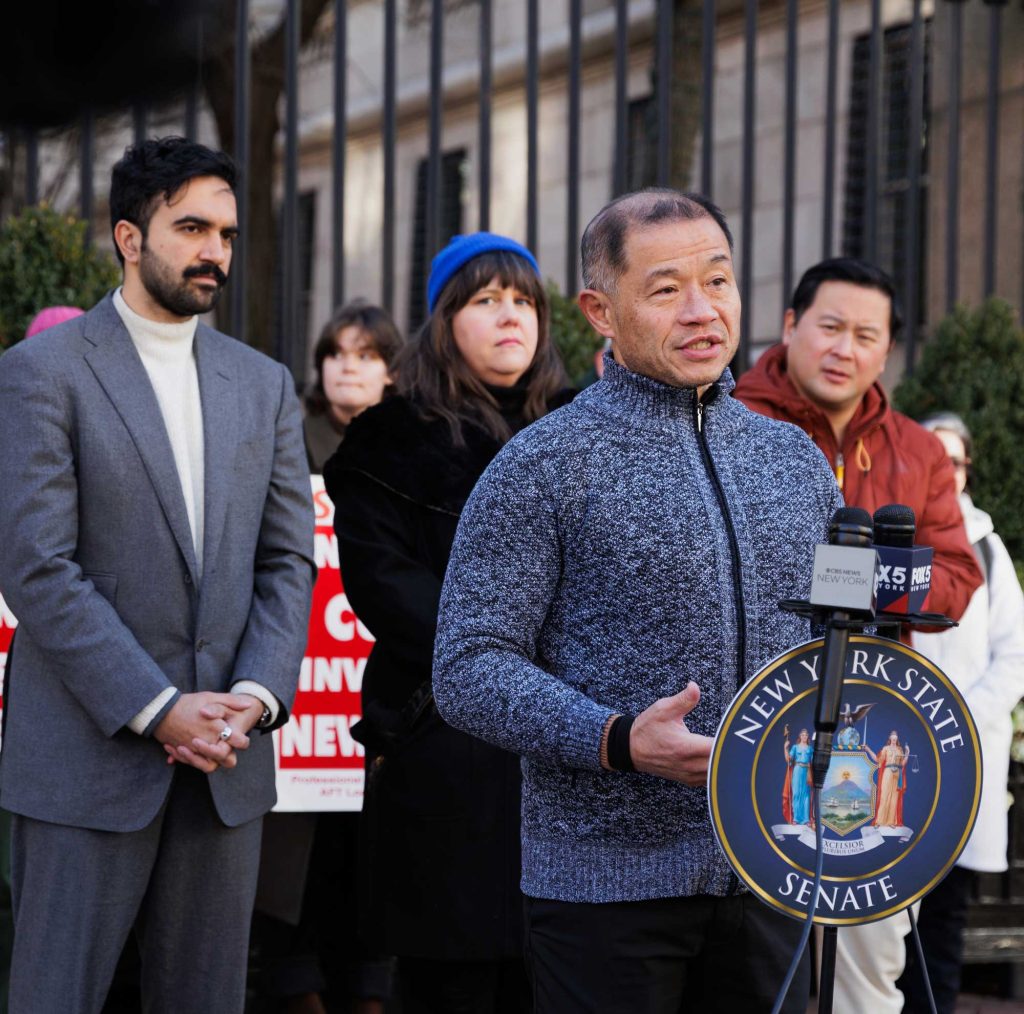
Senator John Liu, center, announces the legislation. Behind him, from left, are Assembly Members Zohran Mamdani, Emily Gallagher and Ron Kim. (Credit: Paul Frangipane)
Both Columbia University and New York University are exempt from paying more than $320 million on their private properties each year. The PSC is supporting legislation that would change that, and help move some of the money to fund CUNY.
During a press conference held at Columbia University on December 12, PSC President James Davis stood with Assembly Member Zohran Mamdani and State Senator John Liu to unveil a set of bills that would make it possible to levy fees on these rich institutions and would earmark returned revenue for CUNY. Specifically, the bills would “end property tax exemptions for private universities with property taxes costing over $100 million yearly,” according to a statement from Assembly Member Mamdani’s office.
That’s money the public university desperately needs.
“Barred by state law from making wealthy, private universities like NYU and Columbia pay their fair share of property taxes, the city balances its budget by inflicting austerity on CUNY, the working people’s public university,” Davis said in a statement. “With multibillion-dollar endowments, tuition rates twice the typical CUNY student’s annual family income and vast holdings of the most valuable real estate in the world, NYU and Columbia can easily afford to pay their taxes. And Albany can make it happen by ending the property tax exemption for the wealthiest private colleges.”
Both universities “collectively saved $327 million on property taxes this year,” The New York Times reported, adding, “The amount the schools save annually has soared in recent decades as the two have bought more properties, and the value of their properties has also increased.” The paper said that “as Columbia has grown its physical footprint to become the city’s largest private landowner, it has enrolled fewer students from New York City,” which stands in contrast to the recently reported enrollment growth at CUNY.
Mamdani told The New York Times, “This bill seeks to address universities that have so blatantly gone beyond primarily operating as institutions of higher education and are instead acting as landlords and developers.”
Published: December 21, 2023

